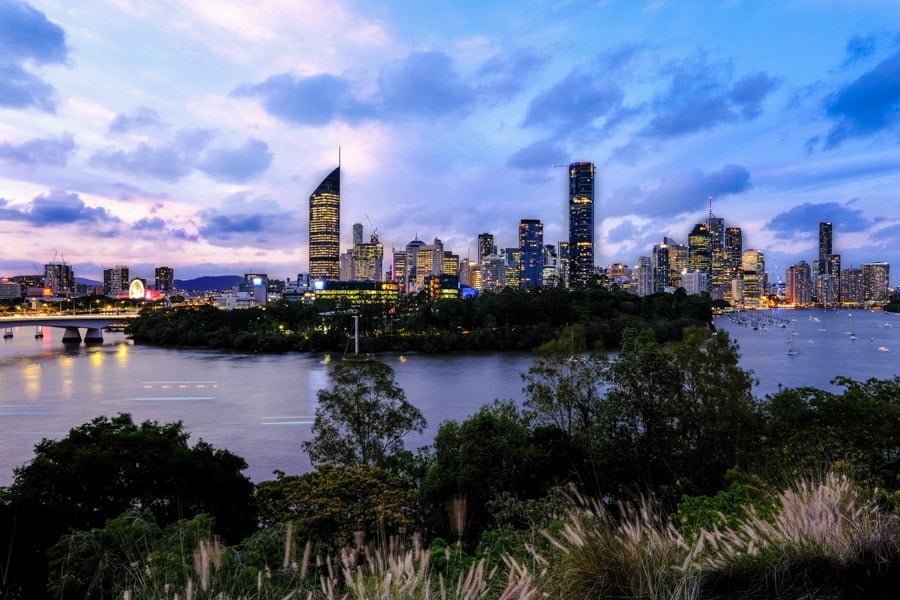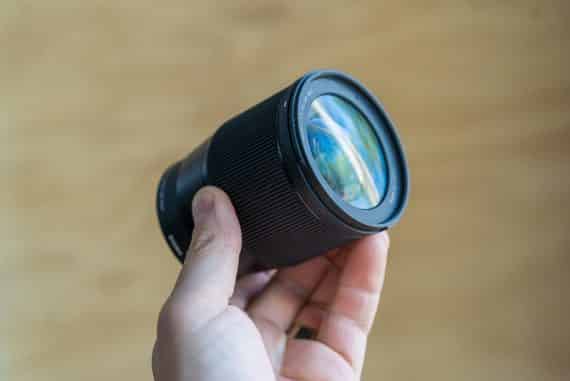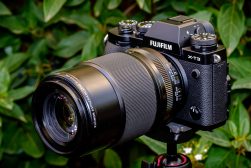
Fujifilm XF 8-16mm f/2.8 Lens Review
The Fujifilm XF 8-16mm f/2.8 is a sharp, water-resistant wide lens with minimal distortion and quick autofocus. Is it right for you? Read on to find out.
By Matt Murray
This is a guest review of the Fujifilm 8-16mm f/2.8 by travel, portrait and stock photographer Matt Murray.
A weather-resistant wide-angle zoom has been on the wish lists of many X Series photographers ever since the release of the popular Fuji XF 10-24mm f/4 R OIS lens.
So when the Fujifilm XF 8-16mm f/2.8 R LM WR lens appeared on the roadmap, it quickly became one of the most eagerly anticipated lenses in the lineup. But does the reality match the hype? Well, yes and no.
Stunningly sharp across the frame – even at f/2.8 – the lens features exceptional image quality, as you’d expect from a Fuji lens.
I thoroughly enjoyed using it on my Fujifilm X-T3, but it did leave me wondering, who exactly is this lens for?
Fuji 8-16mm WR Review | Lens overview
The XF 8-16mm f/2.8 R LM WR lens is the latest in Fujifilm’s series of high-end red badge weather resistant zoom lenses with constant maximum apertures of f/2.8.
Alongside the XF 16-55mm f/2.8 R LM WR and the XF 50-140mm f/2.8 R LM OIS WR
lenses, the range now covers full-frame focal lengths equivalent to 12mm-213mm.
This ultra-wide-angle zoom has been created with an incredible 20 elements in 13 groups – including 4 aspherical, 3 extra-low dispersion, and 3 super ED elements.
The two front lens elements are treated with a Nano-GI coating to eliminate ghosting and flare.
The lens also features a correction element that adjusts according to the position of the zoom in order to achieve edge-to-edge sharpness.

@Baileyclark01 in a van | Fujifilm X-T3 with XF 8-16mm f/2.8R LM WR lens | 1/750 sec at f/4 ISO 320
The metal lens barrel is sealed at 11 places to make it resistant to dust, moisture, and temperatures down to -10 degrees Celsius.
Additionally, the front lens element is coated with fluorine to repel water and dirt.
I didn’t really have the opportunity to test the weather resistance of the lens. The wildest weather conditions I experienced in Brisbane during my test shoots were a few spots of rain.
As you’d expect from any Fujinon lens – especially at this price point – build quality is excellent, and the lens has an exceptional feel to it.
Fuji 8-16mm f/2.8 | Ergonomics
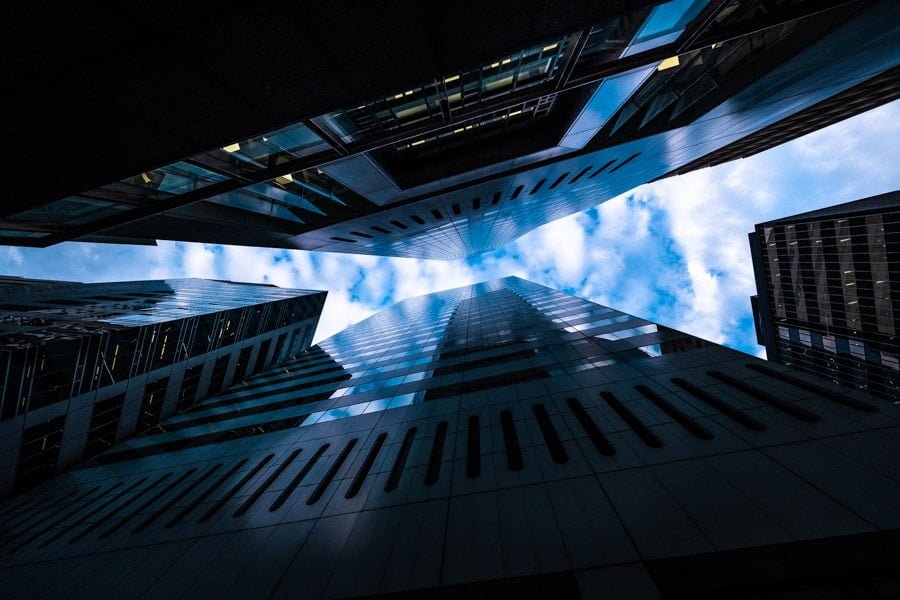
Brisbane skyscrapers | Fujifilm X-T3 with XF 8-16mm f/2.8R LM WR lens | 1/550 sec at f/5.6 ISO 320
The XF 8-16mm feels pretty hefty, which is not surprising as it weighs in at 805 grams (1.7 lbs). Mounted on my Fujifilm X-T3, the combo felt slightly front heavy.
[Related: Fujifilm X-T3 Review]
For my night / dusk shots of Brisbane, I mounted the X-T3 / XF 8-16mm combo on my 12-year-old Manfrotto tripod and it felt perfectly secure.
Unlike many of the other lenses in the X Series lineup, it’s not the kind of set up you can use one-handed for very long.
Often when I’m doing portraits in an urban environment, I hold an off-camera flash up with my left hand, with my camera in my right hand.
I often shoot in places where I’m not able to use a light stand. I managed this for a few frames with the X-T3 / XF 8-16mm combo, but it wasn’t exactly comfortable.
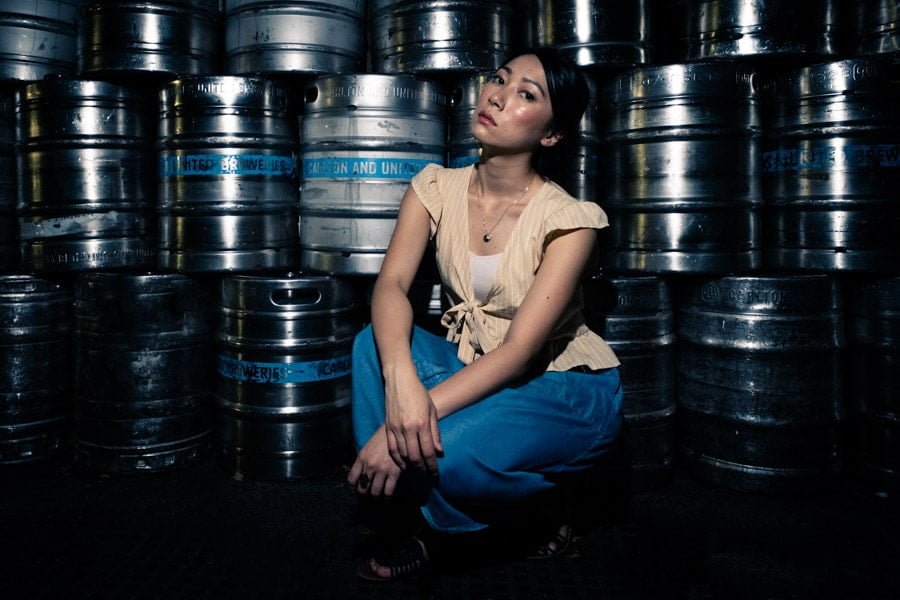
@Anneke.grace in a Brisbane alleyway | Fujifilm X-T3 with XF 8-16mm f/2.8R LM WR lens | 1/60 sec at f/2.8 ISO 800, LED constant lighting
Autofocus is quick, smooth and quiet. I don’t think it missed focus a single time when I was using it.
The aperture ring has a nice amount of resistance in third-stop increments from f/2.8 to f/22. I found the lens to be sharp across the frame, even at f/2.8.
Barrel distortion seems to be minimal and there was no noticeable vignetting when using the lens. I took quite a few shots with models close-up at f/2.8. Compared to other lenses, this felt uncomfortably close!
Although the out-of-focus areas of the frame look pleasant, this is not the kind of lens to buy if you want a bokeh monster.
As you’ve probably heard by now, this is the first lens in the X Series lineup that features a fixed lens hood, as the front element of the lens is curved.
The lens cap fits snugly over the top of the hood and lens, similar to how the lens cover goes over the top of the lens on the X100 line of cameras.
Fuji 8-16mm | Portraits

@Baileyclark01 in a kombi van | Fujifilm X-T3 with XF 8-16mm f/2.8R LM WR lens | 1/280 sec at f/4 ISO 320
I really enjoyed using the lens for urban portraits. Having said that, three of the four portraits included in this review were shot at 16mm – the fixed focal length of one of the best Fujifilm X Series lenses you can buy – the Fujifilm XF6mm f/1.4R WR).
As with other wide angle lenses – be careful of placing your subject in the outer areas of the frame, especially at wider focal lengths.
I really enjoyed using the Fujfilm 8-16mm f/2.8 R LM WR for urban portraits. Working with such a wide angle lens meant that I didn’t need much of a working distance taking photos in a setting where there are pedestrians, cars and other distractions.
It was also perfect for working in places where there was very little room – the shot of Anne with the barrels was taken in a narrow Brisbane alleyway – I wouldn’t have been able to take the shot with anything more than a 23mm lens.
The 8-16mm f/2.8 R LM WR was perfect for this shot, allowing me to get as much of the scene in as possible.
I was also able to do this with the shots of Bailey – the focal length of the lens allowed me shoot the Kombi van with the doors wide open and get everything in shot.
Although I enjoyed used the lens for urban portraits, it must be noted that three of the four portraits included in this review were shot at 16mm – the fixed focal length of one of the best Fujifilm X Series lenses you can buy.
As with other wide angle lenses – be careful of placing your subject in the outer areas of the frame, especially at wider focal lengths.
Fuji 8-16mm | Landscapes / Cityscapes
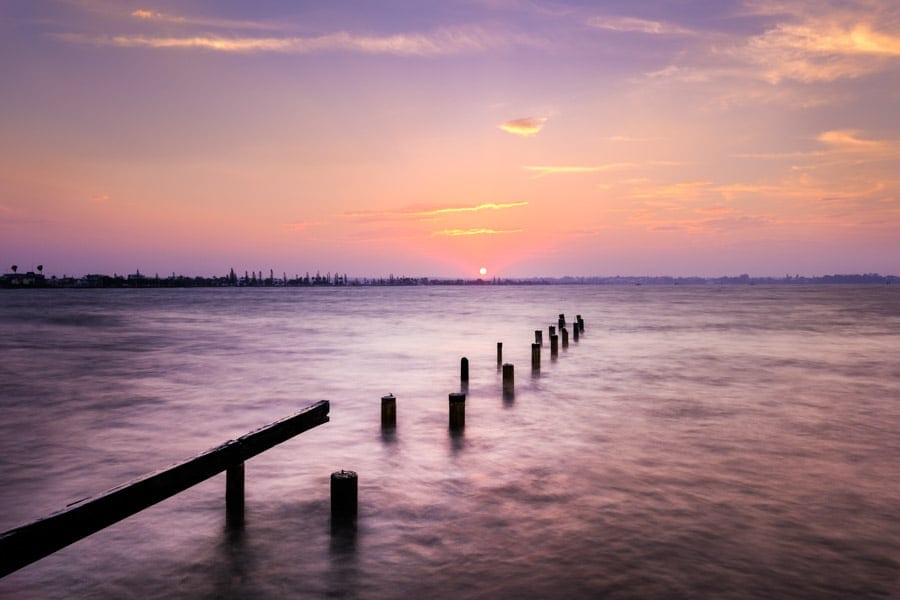
Cleveland Point sunset | Fujifilm X-T3 with XF 8-16mm f/2.8R LM WR lens | 2.3 seconds at f/11 ISO 160
I enjoyed using the lens for landscape and cityscape shots. It certainly gave me a point of view that I wouldn’t usually have, with a faster aperture than my XF 10-24mm f/4 R OIS lens.
A lot of commentary I saw about the lens before its release was from landscape photographers who were excited by a wider offering than the XF 10-24mm f/4 R OIS.
However, with a fixed lens hood, where does that leave you if you want to use the lens with a filter system?
Lee Filters have already released a wide-angle lens adaptor for the lens for their large SW150 filters – the SW150 Mark II.
I’ve heard that NiSi are working on something too. Even so, my NiSi filter system is the 100mm set, which would cause vignetting throughout much of the focal range.
For the shot of Cleveland Point at dusk, I zoomed the lens to 16mm and then held my ND filter against the lens hood to create a longer exposure.
This wasn’t a particularly enjoyable experience. It took a few attempts to hold it still enough without nudging the camera or pulling it away too far, which would’ve created a reflection on the filter glass.
Fujifilm XF 8-16mm f/2.8 Sample Images
Check out these sample images taken with the Fujifilm XF 8-16mm f/2.8.
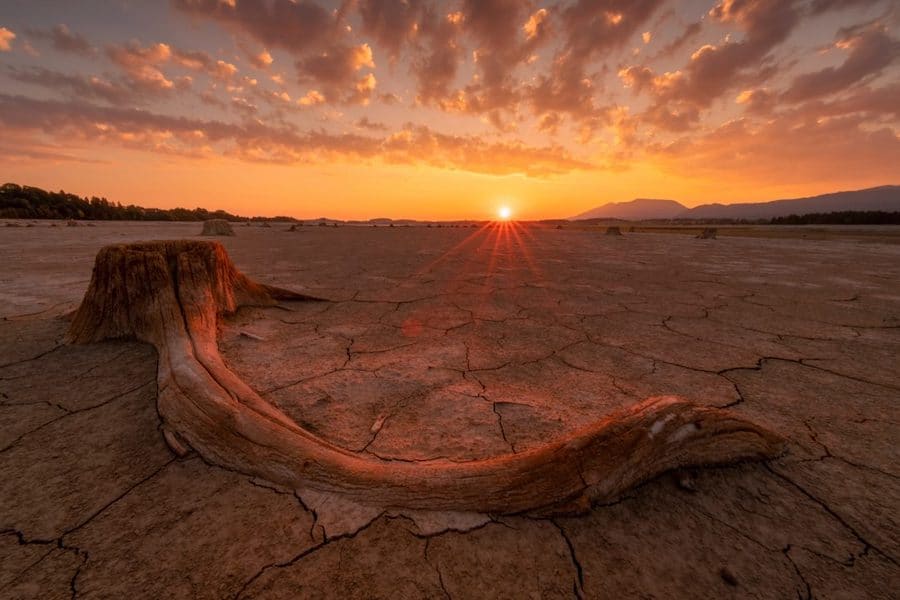
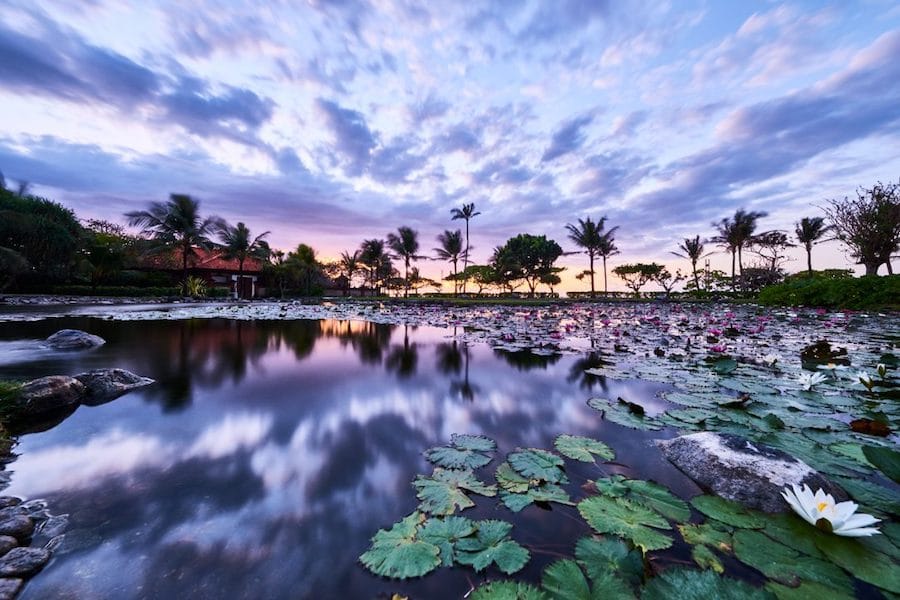
Credit: Gianluca Colla

Credit: Gul Yildiz

Credit: Scott Grant
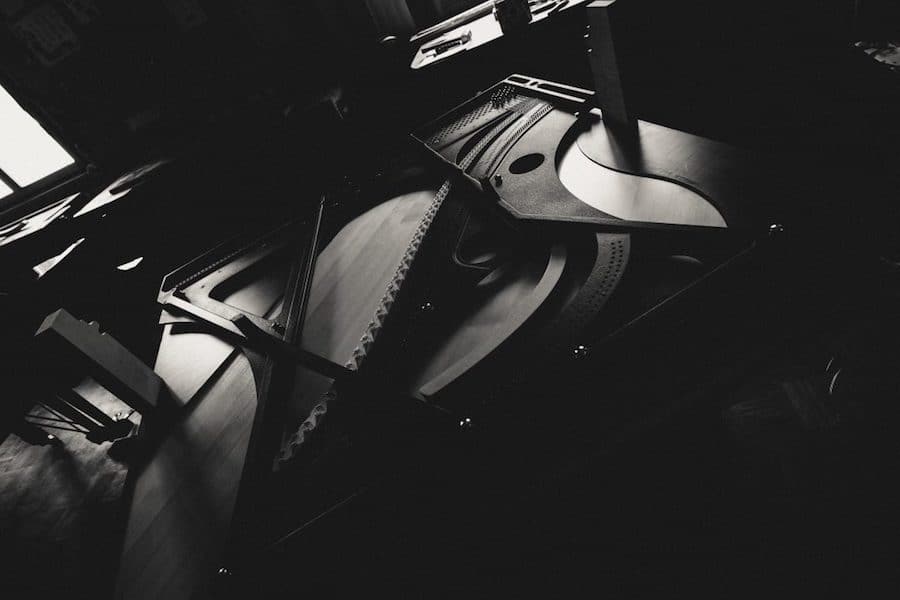
Credit: Tomasz Trzebiatowsk
Fuji 8-16mm WR | Is this lens for you?
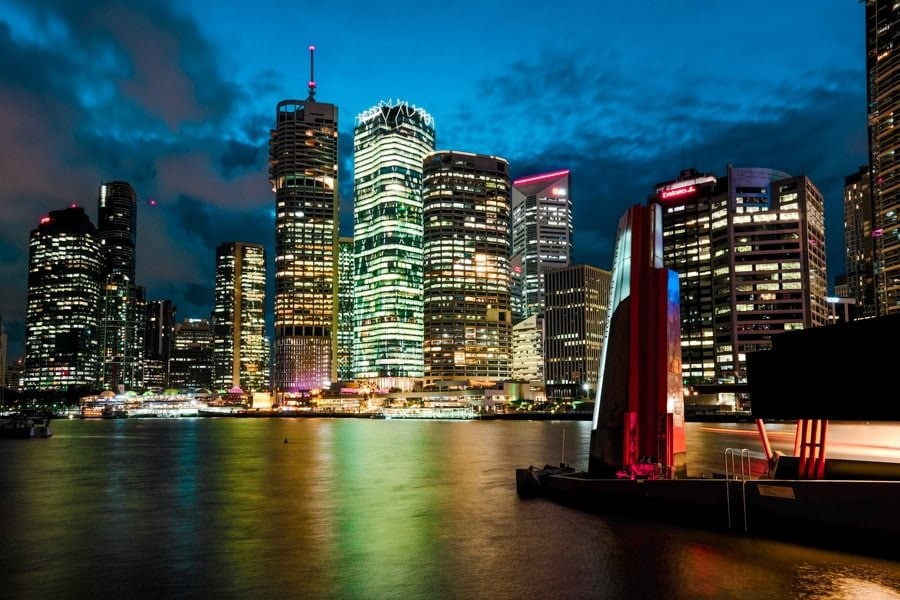
View from the Holman Street Ferry Terminal | Fujifilm X-T3 with XF 8-16mm f/2.8R LM WR lens | 10 seconds at f/9 ISO 200
The biggest question I had in my mind when using the lens was this: Who is the market for this lens?
Yes, it’s sharp. Yes, it’s stunning quality, as you’d expect from Fujifilm.
However, for many X Series landscape photographers, the fixed lens hood is a deal breaker.
They’ll be looking forward to another lens on the roadmap – the XF 16-80mm f/4 R OIS WR lens. Some are even waiting for a WR version of the 10-24mm.
Although this may not be the lens for every X Series photographer, the XF 8-16mm f/2.8R LM WR lens fills an important gap in Fujifilm’s lineup.
It will be the go-to lens for many people, including architecture and real estate photographers, who need excellent optics with a wider angle of view.





